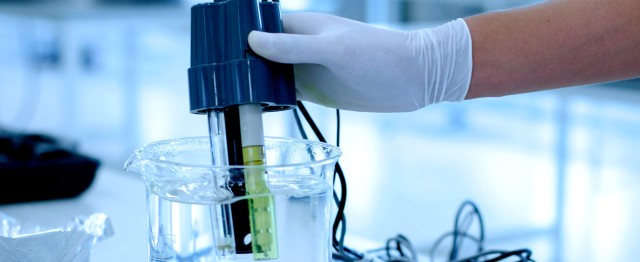Captain Ad Hoc: Sensor for in situ analysis of emerging pollutantsCAPTeur pour l’Analyse IN situ des polluants émergents

A scientific project invites teams of scientists to propose innovative research, new or disruptive topics, to reduce identified barriers, but also to promote interdisciplinarity and dissemination of information.
The CAPTAIN Ad Hoc project aims to develop innovative methods to detect, in real time and in situ, emerging pollutants (pesticide and drug residues) frequently encountered in aquatic environments, based on the development of specific electrodes and relevant software.
Two obstacles had indeed been identified as the main problems in the deployment of such sensors: their selectivity towards the target molecule and their sensitivity due to the generally very low concentrations of the molecules concerned. The functional modification of a screen-printed electrode by a biomolecular recognition will make it possible to obtain a specific sensor of the target molecule. The sensitivity of the sensor will be improved by the construction of a new electrochemical platform using a polymer assembly.
A multidisciplinary research in 5 steps
To bridge the gap between laboratory development and application in real environmental conditions, multidisciplinary skills are mobilized, ranging from molecular biology to metrology, including synthetic chemistry, electrochemistry and the development of innovative solutions for data processing and interpretation.
The CAPTAIN Ad Hoc project, developed in partnership with the Communauté d'agglomération Pau Béarn Pyrénées authority and Bertin Technologies, is organized in 5 steps:
- Design and develop detection molecules,
- Develop a polymer interface and/or a composite polymer material functionalized by the recognition biomolecule,
- Develop a pre-concentration system,
- Develop a flow injection analysis (FIA) system,
- Develop a software system for an optimized industrial exploitation of the sensor.
Read article on Phytocaptor sensor (in French), developed alongside the Captain Ad Hoc project and in partnership with Novaptech, to detect pesticide residues such as glyphosate or metolachlor.
Captain Ad Hoc project leader
Corinne Parat, I
